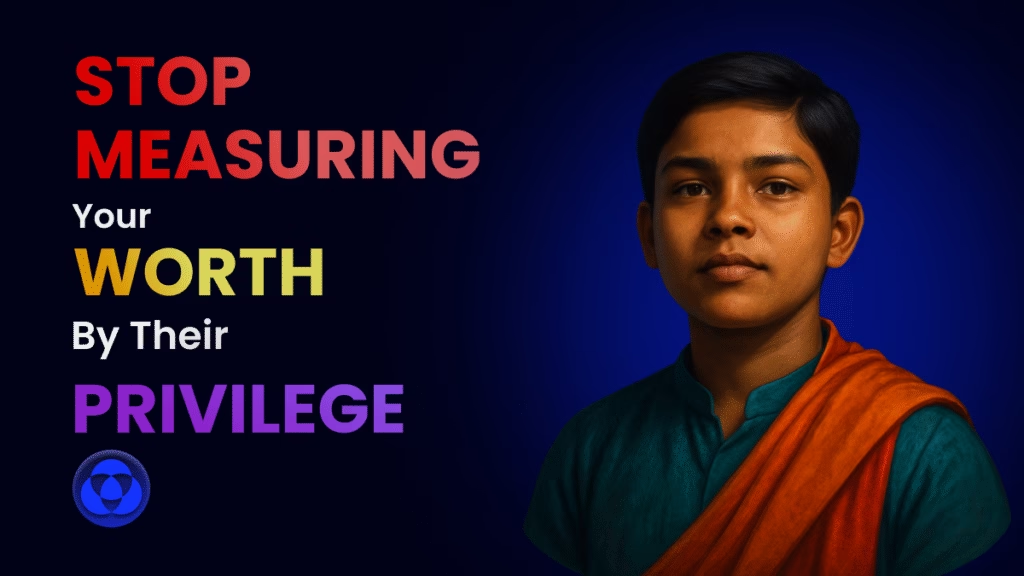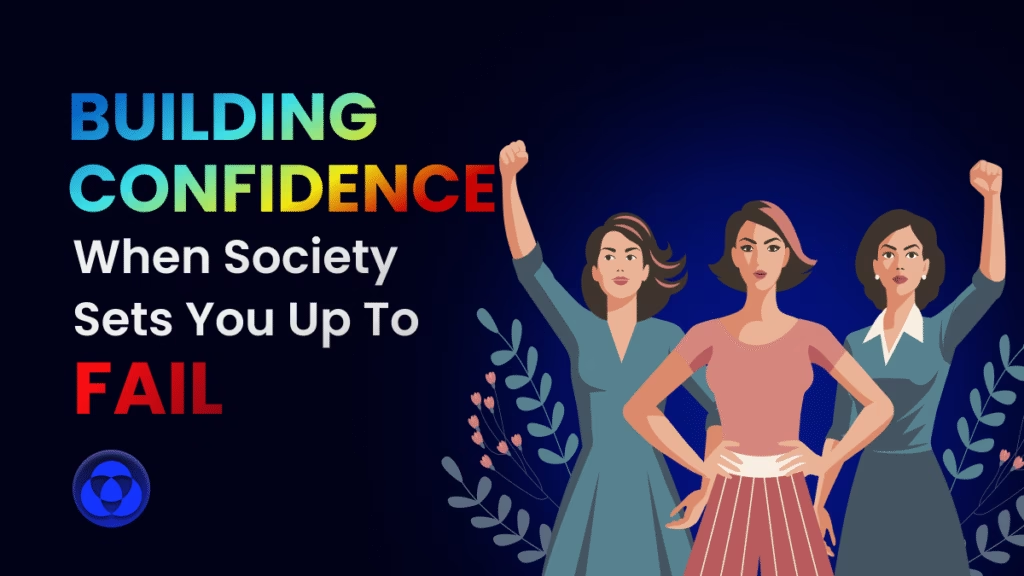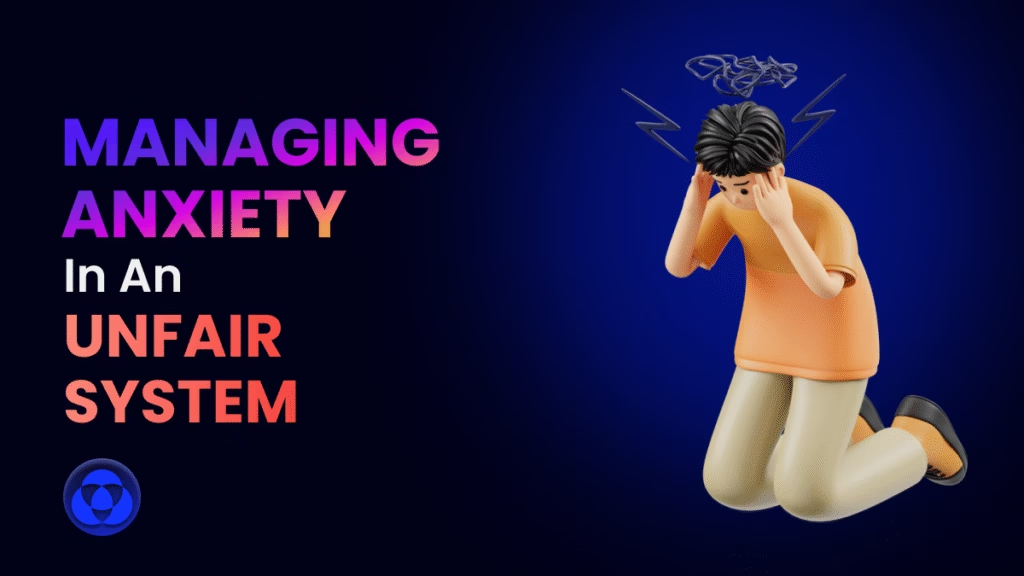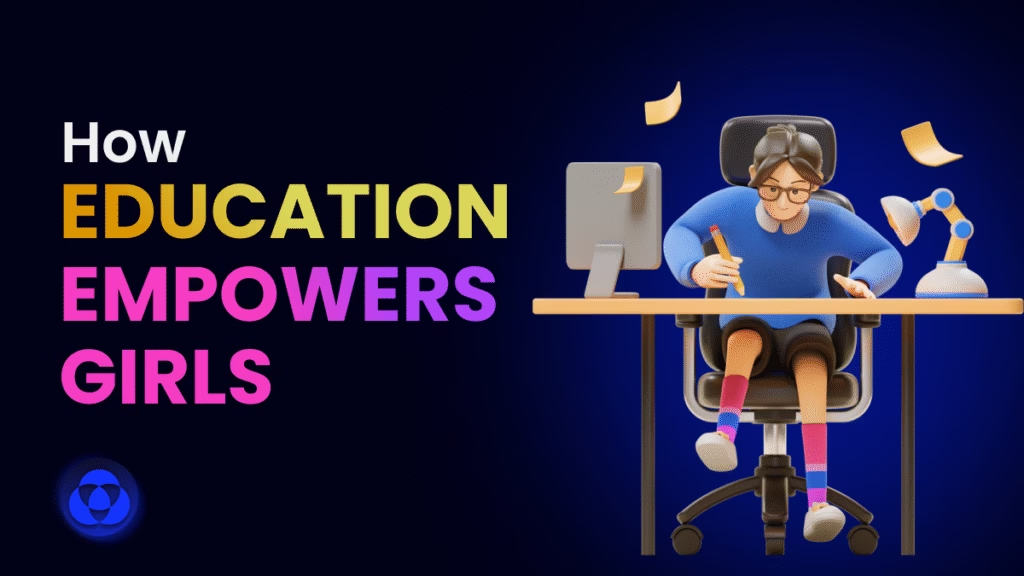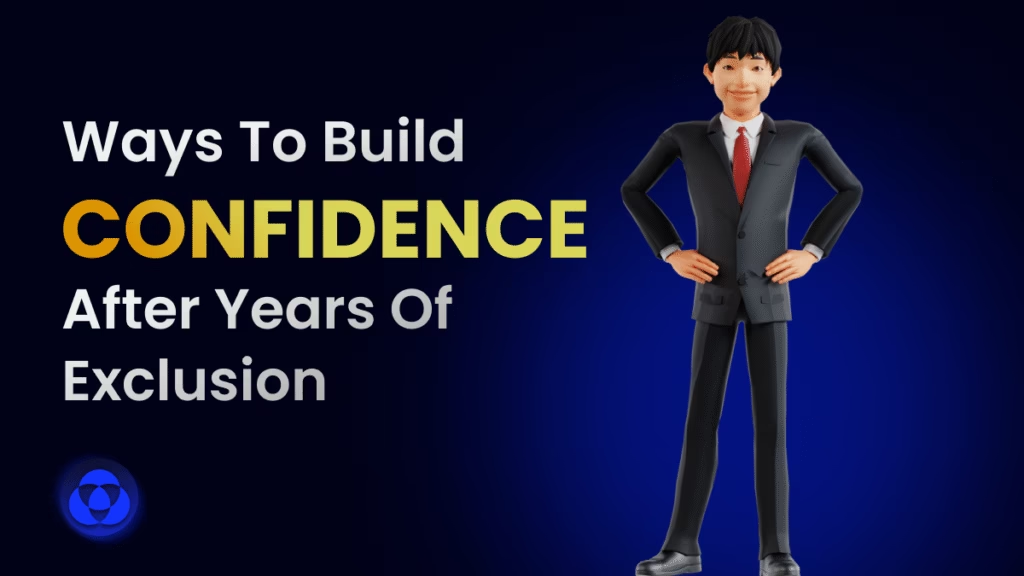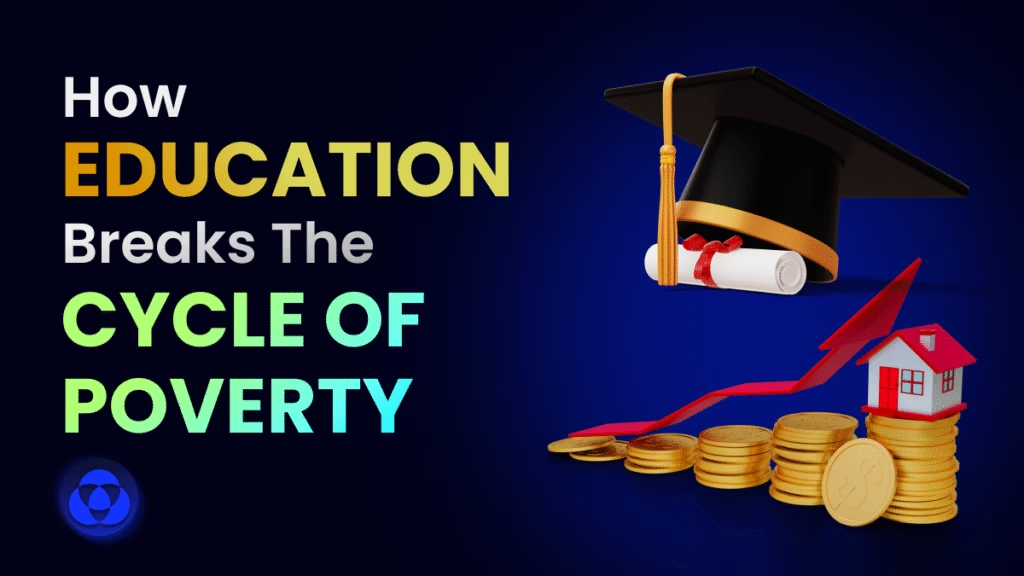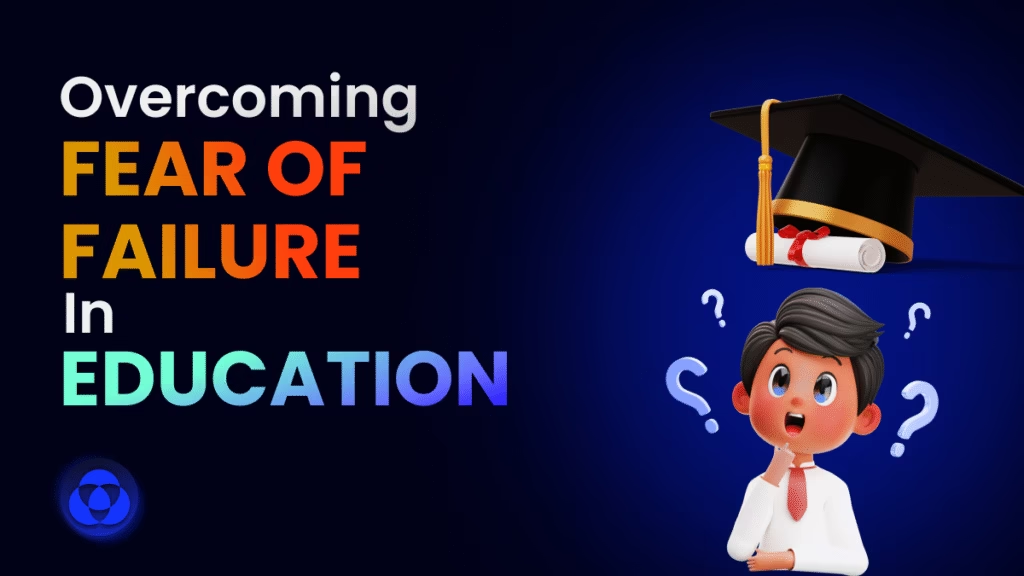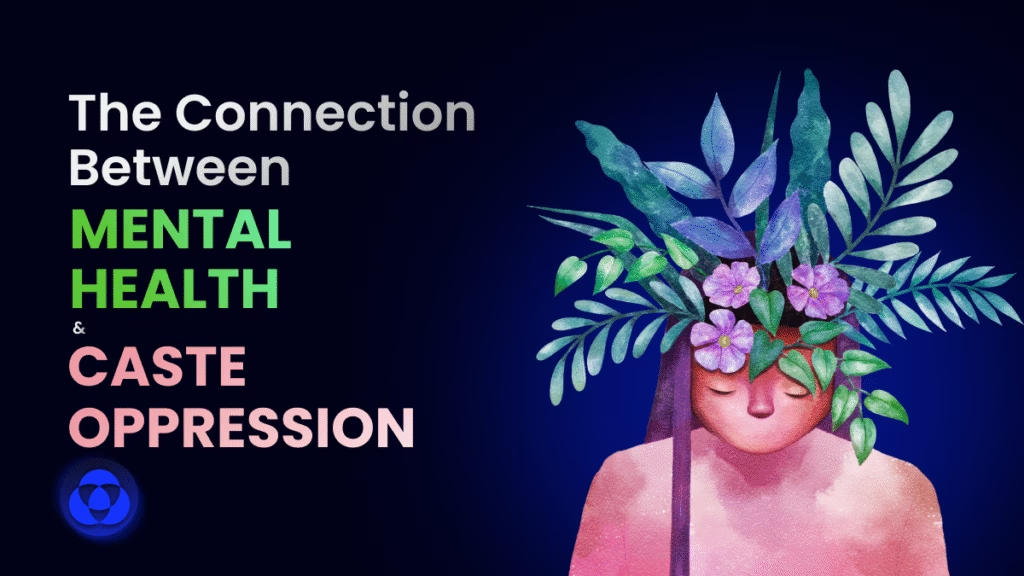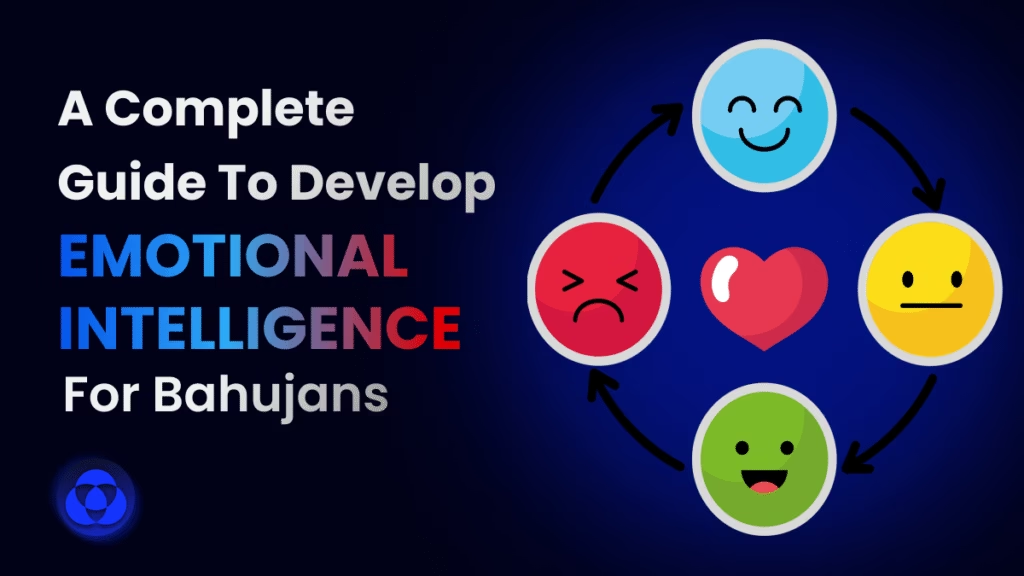Have you ever looked at someone else’s success and wondered why you’re not there yet? Perhaps you’ve watched classmates breeze through education while you struggled, or seen colleagues climb career ladders that seem out of your reach. For many Bahujans and other marginalized individuals, this feeling is all too familiar especially when comparing themselves to peers who come from privileged backgrounds.
These comparisons often leave us feeling inadequate, as if we’re somehow falling behind or not working hard enough. But here’s the truth: comparing your journey to someone who started with advantages you didn’t have is like comparing two runners in a race where one began miles ahead of the other.
In this article, we’ll explore why these comparisons are fundamentally unfair, how they impact our mental health, and most importantly, how we can break free from this cycle to build genuine self-worth and success on our own terms.
The Uneven Playing Field: Understanding Privilege and Systemic Barriers
What Is Privilege?
Privilege means having unearned advantages in life because of factors like the caste someone was born into, their family’s economic status, their gender, religion, or access to quality education and networks. These advantages are not earned through personal effort but are often built into the structure of society in ways that benefit some people more than others.
Privilege is often invisible to those who have it, but its effects are deeply felt by those who don’t.
For Bahujans and other marginalized communities, systemic discrimination creates barriers that privileged individuals never have to face. These aren’t just minor inconveniences but significant hurdles that can determine access to education, job opportunities, social networks, and even basic dignity.
Different Starting Lines
Imagine two students – one from a privileged upper-caste family and one from a Bahujan community. Both are equally intelligent and hardworking. However:
- The privileged student attends a well-funded private school with qualified teachers, while the Bahujan student goes to an underfunded government school where teacher absenteeism is common.
- The privileged student has parents who completed higher education and can help with homework, while the Bahujan student’s parents, despite being supportive, had limited educational opportunities themselves.
- The privileged student has a quiet study space at home with internet access and books, while the Bahujan student shares a small living space with family members and has limited resources.
When both students take the same entrance exam, they’re judged by the same standards, even though they had vastly different preparation opportunities. This is the reality of an uneven playing field.
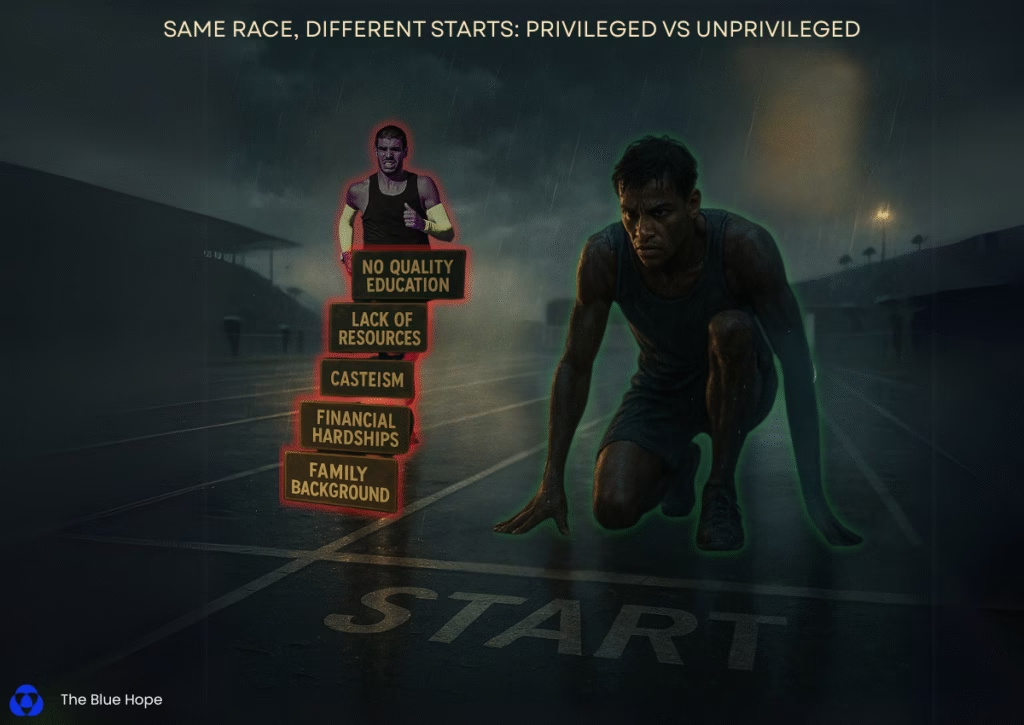
How Privilege Shows Up
- Caste privilege: Being born into a caste that’s historically respected and free from everyday casteism.
- Economic privilege: Having financial stability, a secure home, and the ability to afford better education or healthcare.
- Gender privilege: Not being judged, limited, or harassed because of one’s gender.
- Religious privilege: Being part of a religion that is seen as “normal” or “national” and not facing bias or violence.
- Family background: Growing up in a family with exposure to books, spoken English, stable jobs, and role models.
These things are often taken for granted by those who have them, but they make a huge difference in how people experience life and opportunity.
Caste Discrimination in Education
Discrimination in educational institutions remains a significant barrier for Bahujans. Studies have documented how Bahujan students are often made to sit separately from their upper-caste peers, face social ostracization, and experience physical and verbal abuse.
One respondent in a study reported that “Bahujan children were made to sit on the ground while forward caste students were allowed to use the seating provided in schools”. Another individual, a transgender Adivasi person with a disability, revealed he was also made to sit separately because of his caste and subjected to social ostracization.
These experiences don’t just affect academic performance, they impact self-esteem, mental health, and the belief that success is even possible.
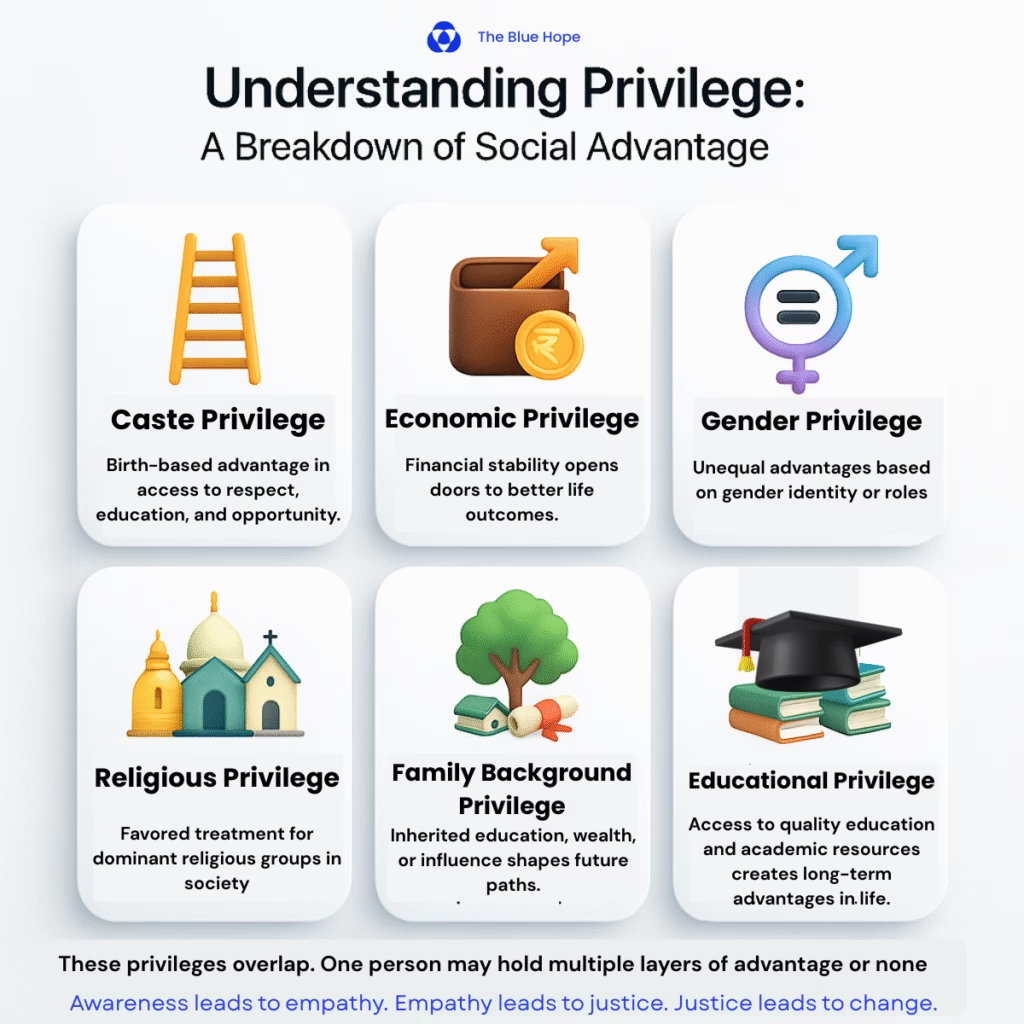
The Mental Health Toll of Unfair Comparisons
The Psychological Impact
Constantly comparing yourself to privileged peers can have serious consequences for your mental well-being:
- Lowered Self-Esteem: When you keep comparing yourself to others who seem to have it easier, you may start feeling like you’re not good enough, especially if you don’t see how privilege helps them succeed.
- More Anxiety and Sadness: Focusing on where you think you’re falling behind can make you feel anxious or depressed.
- Imposter Syndrome: You might feel like you don’t deserve your achievements and worry that others will find out you’re not as capable as they think, even if you’ve worked very hard.
- Loss of Motivation: Sometimes comparing yourself can push you to do better, but often it can make you feel hopeless and stop trying because you think you’ll never catch up.
- Chronic Stress: The ongoing pressure to catch up or prove yourself can wear down your mental and physical health.
- Social Isolation: Withdrawing from others because you feel “different” or not good enough compared to peers.
- Identity Confusion: Struggling to understand your own worth and identity when judged by unfair standards.
The Social Media Effect
Social media has dramatically increased opportunities for comparison. Platforms like Instagram, Facebook, and Youtube show carefully curated highlights of people’s lives – vacations, promotions, perfect relationships – while hiding struggles, failures, and the mundane aspects of daily life.
This creates an illusion that everyone else is thriving while you’re struggling, when in reality, you’re comparing your behind-the-scenes to others’ highlight reels. For Bahujans and other marginalized individuals, this effect is compounded when the people you follow come from privileged backgrounds with advantages you didn’t have.
Practical Strategies to Stop Unfair Comparisons
1. Recognize Systemic Barriers
Understanding that privilege plays a significant role in success doesn’t mean giving up or making excuses. Rather, it helps you:
- Contextualize your struggles within broader systemic issues
- Recognize that not having the same advantages doesn’t reflect on your abilities or worth
- Instead of blaming yourself, use that energy to focus on growing and creating change.
2. Redefine Success on Your Own Terms
Success doesn’t have a single definition. Instead of measuring yourself against privileged peers:
- Identify what truly matters to you, not what society tells you should matter
- Set goals based on your values and circumstances, not someone else’s
- Celebrate progress relative to where you started, not where others are
Ask yourself:
Does this goal align with my growth, or is it just a response to pressure?
Do I value recognition from others, or do I value building confidence and self-respect?
Do I want to look successful on the outside, or feel fulfilled and grounded within?
Am I chasing what I truly want, or what I’ve been told I should want?
3. Practice Self-Awareness and Catch Comparison Thoughts
When you notice yourself making comparisons:
- Write down situations where you most often compare yourself to others
- Note your most common comparison thoughts
- Challenge these thoughts by reminding yourself that comparisons are usually false, they highlight others’ good qualities and your perceived shortcomings while ignoring the full picture.
4. Focus on Your Unique Strengths and Journey
Instead of fixating on areas where privileged peers seem to excel:
- Make a list of your abilities and strengths, no matter how small or big they seem
- Acknowledge how far you’ve come by asking “Where was I a year ago?”
- Recognize that your unique experiences and perspective are valuable assets
5. Limit Triggering Social Media Consumption
Social media can be particularly harmful when it comes to comparison:
- Unfollow accounts that consistently make you feel inadequate
- Take occasional breaks or “digital detoxes” from social media
- Remember that what you see online is carefully curated and doesn’t represent reality
As one expert advises: “Get off social media. You think you can see through it, but you can’t. Unfollow toxic accounts. Write and notice the types of accounts that demotivate you.”
6. Build a Supportive Community
Surrounding yourself with the right people can make a tremendous difference:
- Connect with others who share similar backgrounds and experiences
- Seek out mentors who understand the unique challenges you face
- Join or create spaces where your identity and experiences are affirmed and valued
Research shows that women’s political participation in India increased significantly when they had supportive communities and family networks. The same principle applies to personal growth, as having people who believe in you makes it easier to believe in yourself.
7. Practice Self-Compassion and Forgiveness
Be kind to yourself about past comparisons and perceived shortcomings:
- Forgive yourself for how you treated yourself before
- Practice self-compassion by treating yourself with the same kindness you would offer a friend
- Accept that imperfection is part of being human – no one is perfect, regardless of how they appear
8. Focus on Contribution, Not Competition
Shift your mindset from competing with privileged peers to contributing in meaningful ways:
- Ask how you can use your unique experiences to help others
- Focus on collective success rather than individual achievement
- Remember that lifting others up often leads to your own growth
As one expert notes: “Personal success is not as satisfying as seeing everyone on a team succeed and enabling the success of others.”
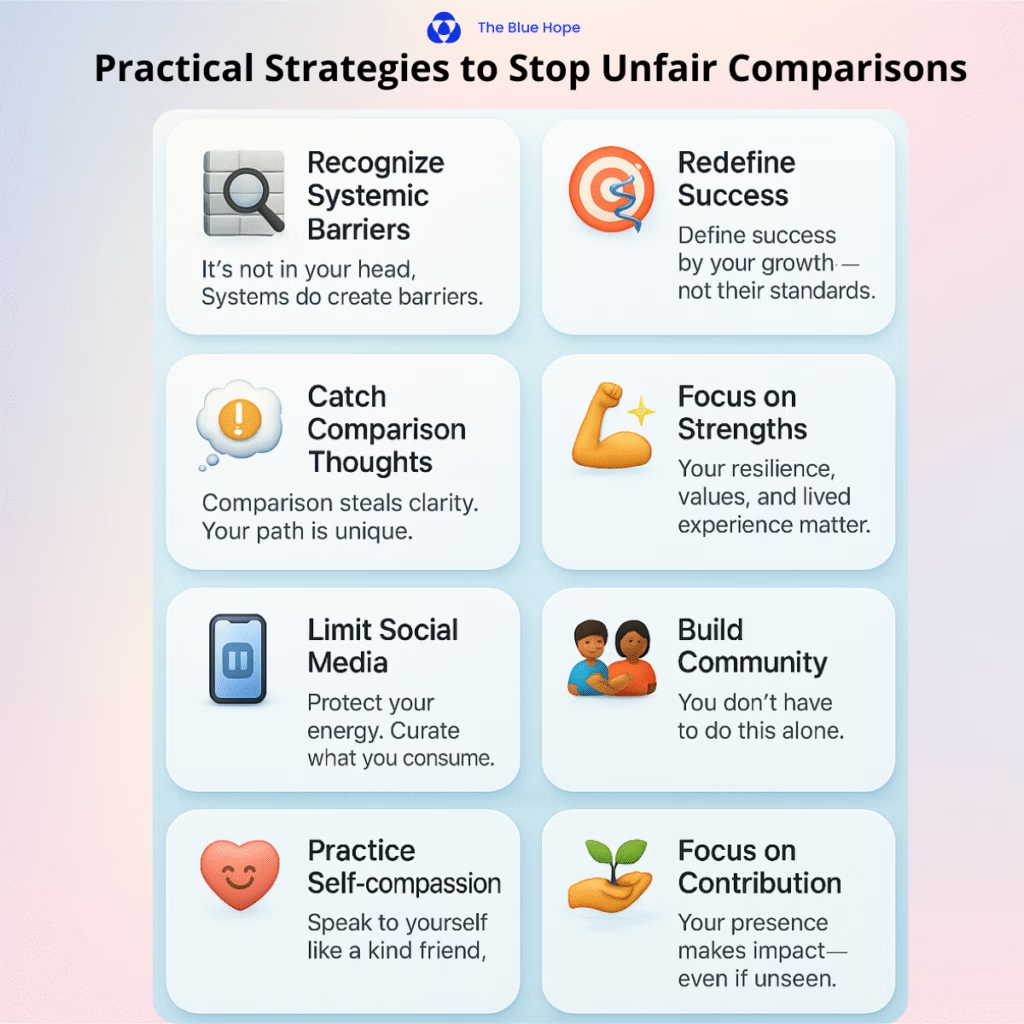
Addressing Common Concerns
Q1: How do I stop feeling like I’m behind in life?
Remember that life isn’t a race with a single finish line. Everyone’s journey unfolds differently, and what looks like “being behind” might actually be taking a different, equally valuable path. Focus on your personal timeline and celebrate your progress, however small it might seem.
Q2: What if I’ll never have the same opportunities as privileged people?
It’s true that systemic inequalities create unfair advantages. However, recognizing this reality doesn’t mean accepting it as unchangeable. Work within your sphere of influence – build skills, seek out alternative opportunities, connect with supportive communities, and when possible, advocate for systemic change.
Q3: How do I stay motivated without comparing myself?
Set goals based on your personal growth rather than external benchmarks. Track your progress against where you started, not against where others are. Find motivation in your values and what matters to you, not in keeping up with privileged peers.
Q4: Can I ever catch up to those who started ahead of me?
This question itself comes from a comparison mindset. Instead of trying to “catch up,” focus on forging your own path. Success isn’t a single destination but a personal journey. Many people who faced significant barriers have achieved remarkable things not by catching up to the privileged, but by creating new paths entirely.
Dispelling Common Myths
Myth: Success is solely about hard work
Reality: While hard work matters, access to resources, networks, and opportunities plays a crucial role in success. Two people can work equally hard but achieve different outcomes due to systemic advantages or barriers.
Myth: Comparing yourself to others is motivating
Reality: While some comparisons can inspire growth, constant comparison to privileged peers often leads to feelings of inadequacy and demotivation rather than productive action.
Myth: Power and money are the ultimate signs of success
Reality: True fulfillment often comes from meaningful relationships, contributing to others, and living according to your values – not from outward markers of status.
Myth: To be successful, everyone else needs to fail
Reality: Success doesn’t have to be zero-sum. Shared success can be incredibly gratifying, and lifting others up often leads to your own growth.
Empowerment Through Self-Work and Community Action
Breaking free from unfair comparisons isn’t just about individual mindset shifts – it’s also about engaging in meaningful self-work and community action.
Self-Work as a Path to Empowerment
True empowerment begins from within. Self-work is the ongoing process of reshaping how we think, act, and live in the world around us. It is about connecting our inner growth with the changes we want to see in society.
Doing self-work involves:
- Becoming more self-aware of our thoughts, habits, and internalized biases
- Understanding the deeper layers of social issues and justice movements
- Using an intersectional approach that respects how caste, class, gender, and other identities shape our experiences
- Building real connections by working with different communities in a spirit of humility and solidarity
To move forward on this path, reflect on where you currently stand:
- The fear zone, where confidence is low and change feels uncomfortable
- The learning zone, where you begin to explore, ask questions, and gain new insights
- The growth zone, where you start to take action with clarity, purpose, and resilience
Self-work may be challenging, but it is also powerful. It shows us that personal growth and collective change go hand in hand. One cannot truly exist without the other.
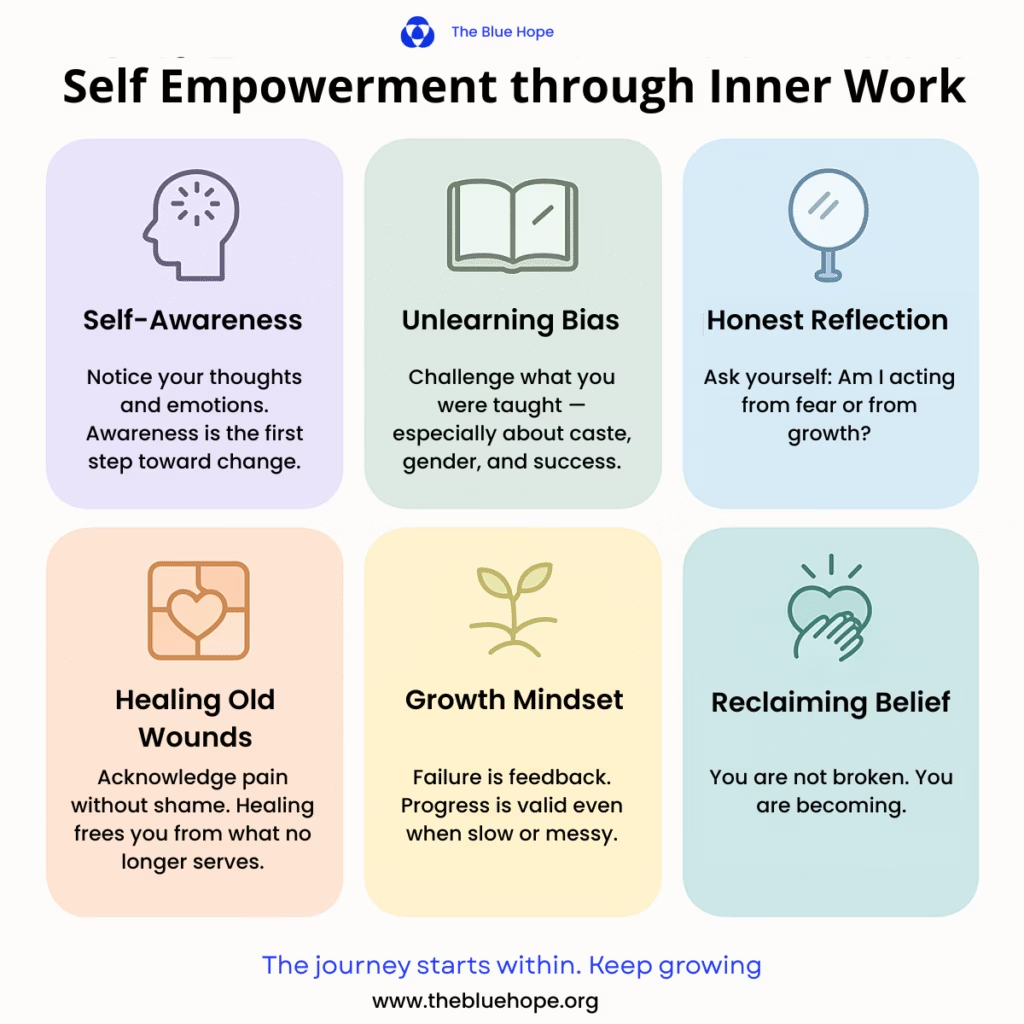
Community Action and Bahujan Unity
At The Blue Hope, we believe that personal empowerment becomes even more meaningful when it is connected to community action. Your growth, your healing, and your strength matter deeply, not just for your own life but for the shared future we are building together.
The struggles we face are not only personal. They are rooted in a long history of caste-based exclusion and injustice. This is why true liberation cannot be an individual journey. It must be a collective one. It must be built on unity.
The vision of Bahujan unity is not just a dream. It is a necessary and urgent response to a deeply unequal system. As our Bahujan thinkers have reminded us:
“Forming Bahujan unity and dismantling the graded caste system — a system created and maintained by the privileged few for their own gain — is essential for transforming society. Only by placing leadership in the hands of those once outcast can we build a future that is truly equal, just, and enlightened.”
Every step you take toward self-awareness, confidence, and healing is important. But it becomes even more powerful when it uplifts others around you. When we come together, our pain turns into strength, our stories become action, and our hope becomes a shared movement.
Let us move forward not in silence or isolation, but together as students, workers, families, and dreamers, united as Bahujans committed to creating a society where dignity is not defined by birth but by justice and equality.
Together, we are not only resisting an unjust system. We are building a new future.
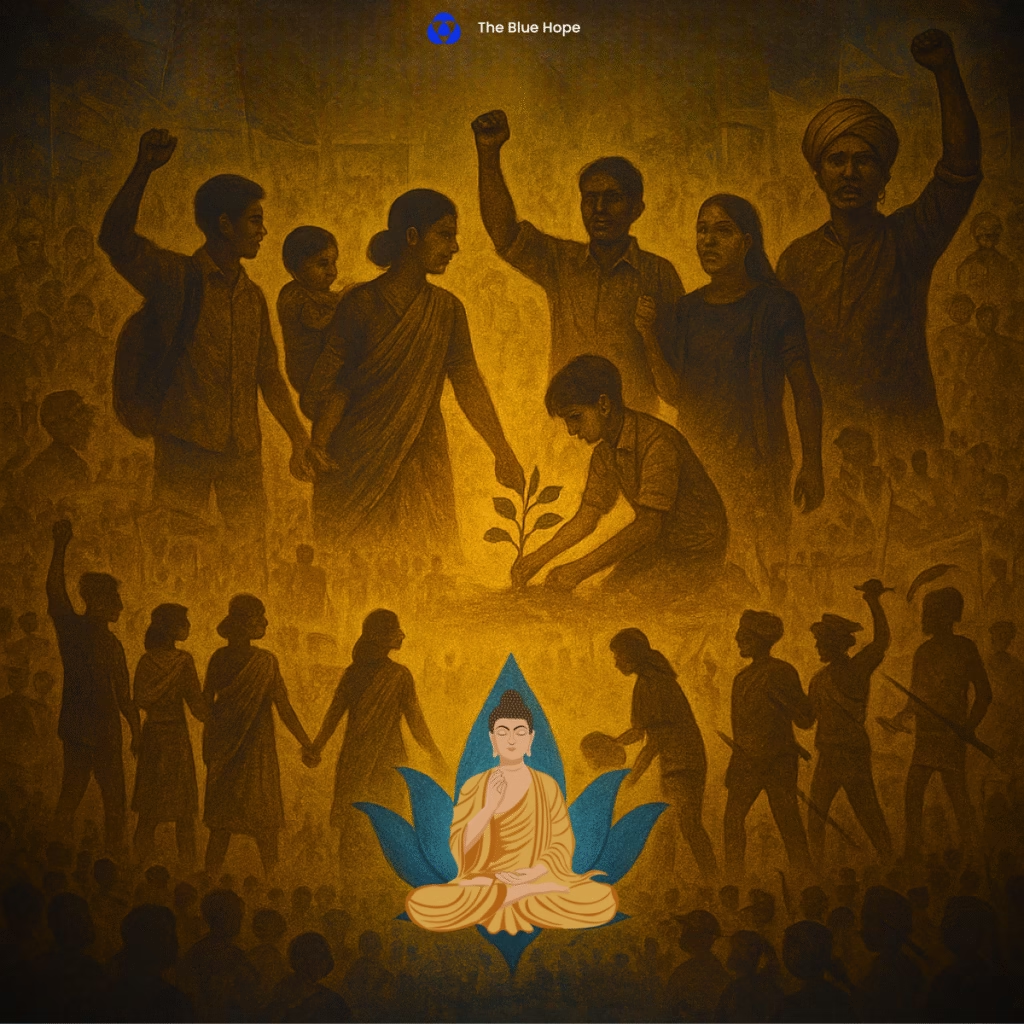
Overcoming Barriers Through Empowerment
Empowerment is a powerful way to overcome the barriers created by privilege, discrimination, and systemic inequality. It grows through consistent efforts, both personal and collective, and can take many forms:
- Education and Awareness: Understanding how caste, class, gender, and social systems shape our lives helps us see that many struggles are not personal failures but structural problems.
- Community Support: Being in spaces where others share similar experiences builds strength, confidence, and belonging.
- Advocacy and Action: Working together to challenge unfair systems leads to more equal opportunities for all.
- Self-development: Building skills, gaining confidence, and working on personal growth helps us take back control of our lives.
Research on women’s political participation in India shows that empowerment occurs through “bridging gaps in education, renegotiating gender roles, the gender division of labor and addressing biased attitudes”. These same principles apply to overcoming the barriers created by caste and other forms of discrimination.
Conclusion: Your Worth Isn’t Determined by Comparison
Comparing yourself to privileged peers is fundamentally unfair because you’re not starting from the same place. The systemic advantages that come with privilege, such as better education, stronger networks, and fewer barriers, create an uneven playing field that cannot be overcome by individual effort alone.
But recognizing this reality isn’t about making excuses or giving up. Rather, it’s about freeing yourself from unfair comparisons so you can focus on what truly matters: your unique journey, strengths, and contributions.
True success isn’t about measuring up to privileged peers or achieving external markers of status. It’s about:
- Growing from where you started
- Living according to your values
- Contributing to your community
- Building meaningful relationships
- Overcoming challenges on your own terms
As you move forward, remember that your worth isn’t defined by how you compare to others but by how you navigate your unique path with courage, compassion, and determination. By focusing on your own journey rather than unfair comparisons, you open yourself to authentic growth and fulfillment that no external validation can provide.
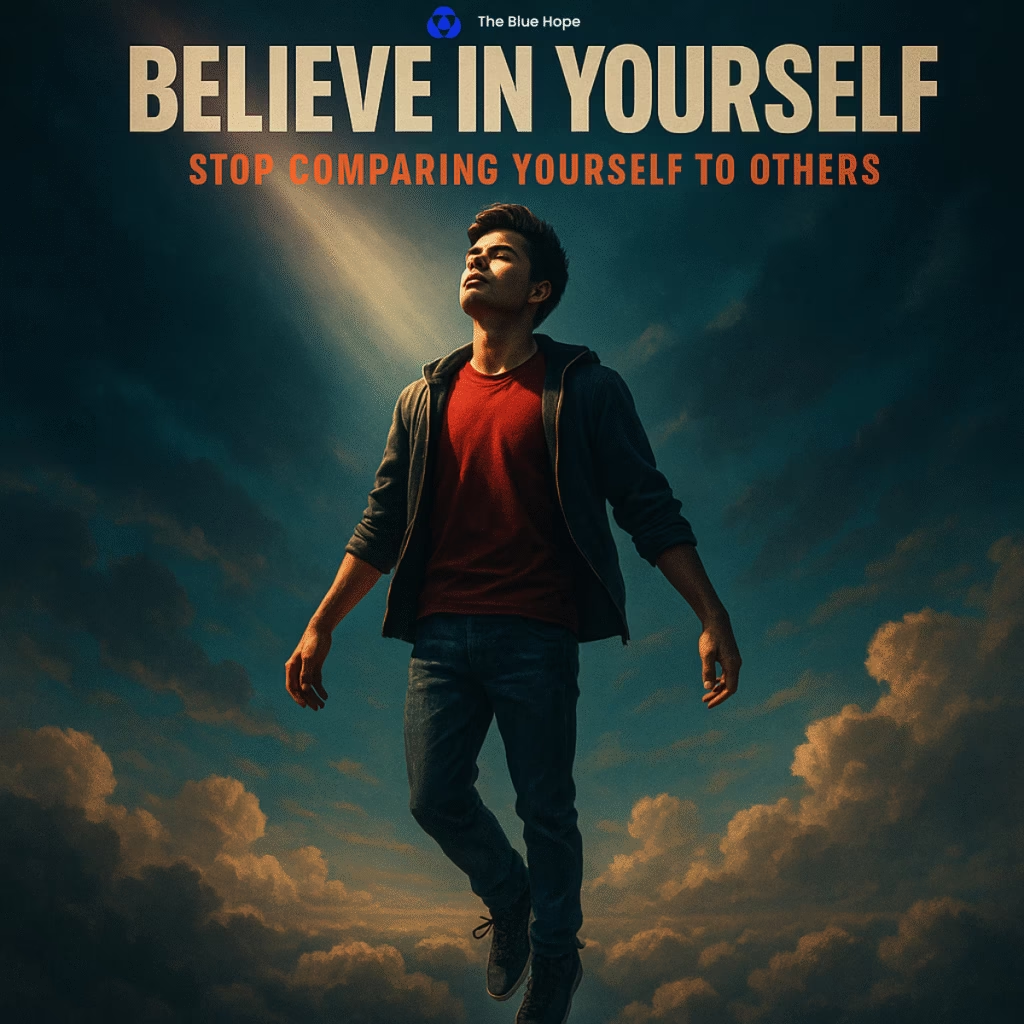
The next time you find yourself comparing your journey to someone with privileges you didn’t have, pause and remind yourself: “This isn’t a fair comparison. My path is different, and that’s okay. I’ll measure my success by my own growth, not by someone else’s standards.”
Your journey matters. Your struggles are valid. Your success, defined by your own terms, is completely possible.

